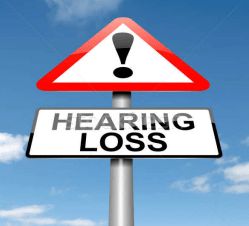Hearing Loss on a Job Site: You Can Sue Your Employer


The only chronic conditions in the U.S. that are more common than hearing loss are high blood pressure and arthritis. According to CDC’s official numbers, 24% of the hearing loss cases in the U.S. are due to a worker’s occupation. If you are struck with hearing loss on a job site, you may be able to sue your employer.
But the primary challenge in pursuing a lawsuit will be proving that your hearing impairment was due solely to your work environment. Having a qualified personal injury attorney beside can greatly improve the likelihood of a positive outcome for your lawsuit.
Understanding Occupational Hearing Loss
In order to win a personal injury lawsuit against an insurer or business, you will need to be able to demonstrate that you are experiencing occupational hearing loss. Occupational hearing loss means that your condition must be caused by your exposure to chemicals, injuries, or extreme noise levels on the job site.
Permanent hearing loss is a common type of occupational hearing loss. However, you may also experience loss in only one ear, hearing that fades in and out, and an inability to understand sounds when background noise is present. A general buzzing or ringing may also be a type of occupational hearing loss.
Physical Causes of Occupational Hearing Loss
When you are trying to prove that your hearing loss is due to your work environment, there are specific physical causes that can help you win a lawsuit. The causes for occupational hearing loss include:
- Uninterrupted exposure to noises louder than 85 decibels
- Head injury as a result of a workplace accident
- Extreme and sudden loud noise exposure at work
Chemical Causes of Occupational Hearing Loss
If you work in an environment that is contaminated with toxic chemicals or fumes, you may experience hearing loss due to your exposure to certain chemicals. Specifically, chemicals may make the ear more likely to develop hearing loss within a loud environment.
These chemicals are known as ototoxic, and include the following examples:
- Metals and metal compounds
- Solvents
- Carbon monoxide
- Hydrogen cyanide
- Antineoplastics
- Nitriles
Who’s Responsible for Preventing Work-related Hearing Loss?
A major requirement in a lawsuit will be proving that your workplace did not take the necessary steps to prevent hearing loss among its employees. One preventative step an employer could have taken is reorganizing employee schedules so that every employee faces limited noise exposure. Employees can also repair or have access to machines that are less noisy.
In addition, a major responsibility of employers is to provide hearing protection to their employees. Your employer might try to give you ear protection that is simply not adequate for the sound levels you are exposed to at work on a day-to-day basis.
Some employers may even provide defective equipment to their workers. The combat earplug producer 3M was sued by for allegedly producing and selling to the U.S. military products that had design flaws.
Proving That Hearing Loss Is Related to Your Work
In a lawsuit filed by their employees, an employer will most likely try to prove that their workers’ hearing loss is caused by age or other risk factors rather than an unsafe work environment. A medical history of hearing tests can be helpful in showing that the progression of your hearing loss is matches your history in a noisy workplace instead of aging.
Legal Rights of Occupational Hearing Loss Victims
If you think that the unsafe workplace conditions caused your hearing loss, you should contact a personal injury attorney immediately. An experienced workplace injury attorney like the experts at Distasio Personal Injury Law will be able to assess your case and help you decide if going forward will result in worthwhile compensation. A lawyer will also be able to refer you to unbiased doctors and help you gather all the necessary evidence to build a rock solid case.




